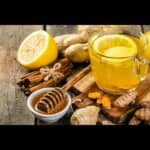What is Turkish tea?
The first thing you need to know about the history of this beverage…
….is that it was not invented in Turkey. It originated from China and has been used for centuries as a medicine, food or drink. The name “tea” comes from the Chinese word tayu which means “the leaves of Camellia sinensis”. In ancient times, people drank tea by steeping dried leaves into boiling water. Today we use different kinds of teas such as black, green, oolong, white etc. You can find these beverages at any grocery store. There are many types of tea: Green, Black, Oolong, White tea, and many more.
You may wonder why there are so many names for one type of tea. This is because each kind of tea contains various ingredients and flavors. For example, green tea is made with young buds while black tea is produced when the leaves have fully matured. Some varieties contain antioxidants called catechins while others don’t. If you like your tea sweetened make sure to ask for it flavored.
There are also herbal variations on offer. However, if you prefer plain old hot tea then just go ahead and order a cup! Tea is considered an important part of life in most countries around the world. Many cultures believe that drinking tea helps them relax after a long day. Other benefits include lowering blood pressure, reducing stress levels and preventing cancer. These days, tea plays an even greater role than before.
History of Turkish Tea
Tea, known in Turkey as çay (pronounced chai), is a relatively new fad. Despite the fact that it was in Turkey that the first coffee (read: Turkish coffee) was drunk as a beverage and the first coffee shops were established, Turkey is now more of a tea culture. Following World War I, coffee, an imported product, became prohibitively costly, and Ataturk, the creator of the Republic of Turkey, introduced black tea cultivated in Turkey, especially in the region of Rize, which is why Turkish tea is often referred to as Rize tea.
How Do You Make Turkish Tea
Turkish tea is manufactured from processed tea plants cultivated in Rize, Turkey’s Black Sea area. A Turkish tea kettle or a Turkish teapot set is traditionally used. A Turkish teapot set is divided into two sections, the top of which is used to infuse tea leaves and the bottom of which is used to store boiling water. Pour boiling water into the top half of the teapot set, known as demlik, and place it on the burner to steep.
Turkish folk do not steep tea with additional components such as cardamom or herbs. When the tea has steeped sufficiently, it is put into unique Turkish teacups constructed of glass and without a handle. Turkish people love to drink their tea in glass containers because the color of the tea indicates its quality or “steeped-ness.” Turkish tea does not contain milk, as does English tea, although Turkish people occasionally add lemon to their tea. And, because you have separate pots for infused tea and boiled water, you can control the amount of heaviness in your tea, which Turkish people refer to as “weak or light tea” or “strong or heavy tea.”
Health Benefits of Turkish Tea
Turkish tea is black tea, therefore it contains all of the health advantages associated with black tea. Some of the health advantages of Turkish tea include lowering the risk of advanced cancer due to its high amounts of flavonoids and aflavins. Black tea is said to be a natural means of reducing malignant development cells. Tea contains caffeine, which can help relieve headaches and improve mental health.
Black tea has the most caffeine of any tea variety; nevertheless, the caffeine content of black tea is still less than that of coffee, making it a more balanced energy and alertness enhancer. Aside from these benefits, the polyphenols contained in black tea are antioxidants that can help protect cells from DNA damage. According to one study, drinking tea on a daily basis may reduce the incidence of diabetes, Parkinson’s disease, high cholesterol, and kidney stones.
Was this helpful?
Hi there! I’m a food enthusiast and journalist, and I have a real passion for food that goes beyond the kitchen. I love my dream job and I’m lucky enough to be able to share my knowledge with readers of several large media outlets. My specialty is writing engaging food-related content, and I take pride in being able to connect with my audience. I’m known for my creativity in the kitchen, and I’m confident that I can be the perfect guide for anyone looking to take their culinary journey to the next level.









